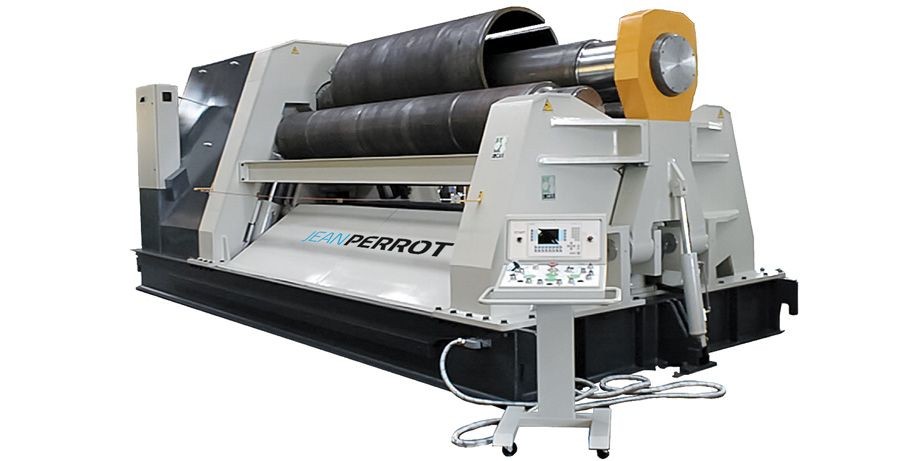Different type of Rolling Machine?

Rolling machines use wheels at formation stations to transform sheets of metal or strips towards the requisite characteristics. The rollers' contours direct the material to be stretched gradually, permitting rapid connectivity and the and the manufacturing of exact elements for a wide range of possibilities. These pieces of equipment have greatly benefited the country's industrial sector because they are extremely productive, malleable, and inexpensive.
The simplest rolling mills have two horizontal rolls for flat rolling and two high rolls. Three rollers arranged vertically in three-high milling make them appropriate for making architectural characteristics. As a result of enhanced oversight over thickness and method, four rollers are used in a three-high mill. For the ongoing rolling or shaping of thin materials, a multiple-roll arrangement can be provided through a pair of cluster mills.
For details regarding our blasting products such as pressure port, sand blasting hopper, Hanger type shot blasting machine, suction blasting cabinets, vacuum blasting cabinets, and many others, please visit our website so that our specialized professionals can provide you with full guidance. For fine finishing, freezing mills function at ambient humidity, but steam rolling mills use extremely high temperatures to compress metal into huge structural forms. Metal strips are regularly formed into intricate features through roll forming equipment, which is extensively utilized in the manufacturing and engineering sectors. With its accuracy, effectiveness, as well as its suppleness in brass shaping operations, any type meets a broad spectrum of manufacturing requirements.
Rolling Machine in India
Rolling mills in India, with their abilities in mass production, support the economical manufacture of metal products. That knowledge is essential to competitiveness and leadership in the market in India's extremely competitive sector. Considering such facilities require qualified employees for operation and procedure, manufacturing as a whole in India has created jobs primarily as a result. India's large population of employees stimulates growth in the economy and generates employment opportunities. Our coal fly ash powder is a fine-grained, powdery particle that is carried off in the flue gas and collected from the flue gas using cyclones, baghouses, or electrostatic precipitators. Bricks, ceramic tiles, plaster, filler in metal and plastic composites, paints, and adhesives are all made from coal fly ash. When creating roads, it's also utilized as a structural filler.
Along with all the categories of rolling machines, we also provide a vast variety of other abrasives, including copper slag, abrasive garnet, walnut shells, steel grit, steel shots and all other categories of steel abrasives. Devices, including air conditioners, freezers, washing machines, and kitchenware, are made using rolling machines. To suit the specifications of India's developing consumer marketplace, they have been used for fabricating metal sheeting components and enclosures with exact forms and quantities.
Rolling Machine Applications
In the construction business, rolling machines are often employed to produce structural components such as purlins, roofing profiles, uprights, and beams. These elements serve as the foundations for several infrastructure projects in India, including structures like bridges and buildings. Rolling machines are extensively used in automotive manufacturing for producing building components, frames, and body sections, including components.
The severe requirements of India's developing automotive sector are accommodated through the precise reshaping characteristics of rolling machines, which guarantee the quality & reliability of motorcycle construction. Apart from abrasive media, we account for the manufacturing of other blasting machines specialized for grits, such as grit blasting machine, pressure grit blasting cabinets, grit blasting room and many others. Tractors, harvesters, tillers, and irrigation systems constitute some of the agricultural tools and technology that are made using picking machinery. India's agricultural industry is supported by the strength and endurance of agricultural gear caused by the metal parts made with rolling machinery.
Rolling Machine Advantages
In order to manufacture metal elements for India's developing infrastructure endeavors, which include everything from building construction to the building of bridges and roads, metal rolling facilities are necessary. Our Massive quantities of ceramic fly ash powder sand mix well with cement's alkalis to stop detrimental expansions. High volume stoneware fly ash powder also contributes to a decrease in hydration heat. The pozzolanic interaction between ceramic fly ash powder and lime inhibits thermal cracking by producing noticeably less heat.
Rolling mills boost India's efforts to enhance its physical structure by offering the resources that are required. Rolling mills have applications in the automotive, development, equipment, and manufacturing industries, among others, to enable the manufacturing of an assortment of metal items. This adaptability strengthens India's manufacturing capabilities and decreases its commitment to foreign products. Our sand blasting cabinet may be used to remove the surface attachment layer and reveal the initial shade of the substrate by treating the metal rust layer, the outer layer of old components, and so forth.
Rolling Machine Manufacturers
Contemporary rolling mills in India consist of modern technology in order to maximize energy efficiency and reduce their ecological footprint. This energy-efficient strategy encourages more sustainable production methods and is in line with the nation's objectives for sustainability and laws. Of all the recycled fly ash powder products in the potential mainstream, recycled fly ash is one of the most widely available. Fly ash, which makes up more than half of coal waste, is 99% filtered out of the trash by power plant exhaust stacks. Ash recycling is growing in popularity as an alternative to disposing of the filtered ash in landfills.
Additionally, rolling mills support India's developing commercial capabilities, delivering doors on the transportation of metal commodities to international markets. By employing competitive strengths that include cost and quality effectiveness, Indian manufacturers build their worldwide exposure and improve their foreign exchange reserves. In the context of shot peening, our low-carbon steel shots are typically utilized in all top engineering applications in conjunction with manufactured goods. Sandblasting machines often employ silicon carbide grit to remove materials such as scale, corrosion, and surface coatings from a range of surfaces.